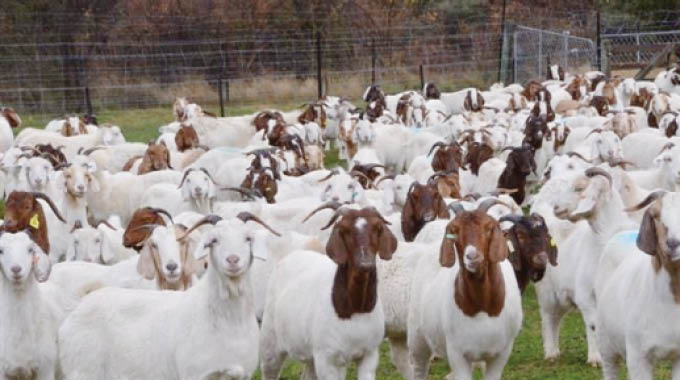
Oliver Kazunga, Acting Business Editor
THE European Union-funded Value Chain Alliance for Livestock Upgrading and Empowerment (VALUE) project targets to register 10 000 goat farmers across the country’s dry regions with a view to improve livestock production.
The project, which is being implemented by Action Aid Zimbabwe, is part of the Zimbabwe Agricultural Growth Programme supported by the European Union (EU) and the Government.
Action Aid team leader Mr Newton Chari told Business Chronicle last week that in the context of climate change, goat production thrives well as goats are more adaptable to dry regions and less susceptible to diseases.
“Goat production in the context of climate change comes in quite handy in that the goats are animals which are more adaptable to the environment which we are at the present moment. They are adaptable to the environment where we are having inadequate rains and a proliferation of diseases.
“We are therefore looking forward to reaching out to 10 000 farmers and already we have started the registration process,” he said in an interview on the sidelines of a media workshop held in Bulawayo.
Mr Chari said under the VALUE project, they were promoting goat production in natural regions 4 and 5 such as Matabeleland, predominantly known as dry regions because of erratic rainfall patterns.
“We have so far registered more than 7 500 farmers and we are confident we will reach our target very soon. In Matabeleland we are looking at 5 000 farmers from Binga, Nkayi, Lupane, Beitbridge, Gwanda and Matobo,” he said.
Mr Chari said they were promoting goat production for commercial purposes even by small holder farmers.
“The reason why we are promoting goat production is that it should not really be as a status or social buffer to a household, but it should be business that generates income for the family. We have cases of farmers who keep many goats just for status instead of benefiting from their livestock by selling the goats,” he said.
The VALUE programme seeks to boost goat production by training the farmers on good animal husbandry. — @okazunga
